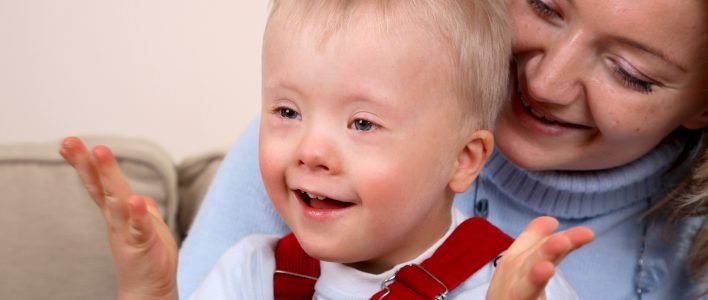
- comment
- November 26, 2017
- by Ashish Kunwar
- 6 min
Disability is a big challenge, especially in developing countries. But disabled people have not chosen their condition; perceiving and fulfilling their needs is therefore of great importance.
Can you imagine waking up in the morning with so much pain in your legs that you can’t move, can’t even get out of bed? Can you imagine yourself in such severe pain that you need help with simple, everyday actions? Can you imagine what it is like to lose your job because you can no longer meet the basic requirements for it?
Can you imagine how your child cries after a hug, but you are unable to hold it because of the pain in your bones and joints? Finally, can you imagine children with intellectual disabilities being tied up, as is sometimes the case in developing countries?
Each of us has different skills. However, many people also need the support of society in their everyday life.
We don’t call people "with special needs"; we start to see them as "special children”Or“special people" to call. And because they are special, we have to take care of them a little bit more than others.
Diseases, accident injuries or birth complications – all of these are realities of life. Of course we would like everyone to be able to use their legs, but if this is not the case, it does not have to be a disaster for the person concerned. People can support others to ensure that their lives are not too difficult. It is a social rather than a personal problem and must therefore be addressed as such.
Disability is part of the human condition. Almost everyone is temporarily or permanently impaired at some point in their lives, and those who reach old age will experience increasing restrictions in the functioning of their bodies. Most large families have members who need help, and many who are better off take responsibility for supporting and caring for their relatives and friends with disabilities.
For example, 13-year-old Raju is autistic. He sits there completely separate and does not communicate with peers, but on the other hand is temporarily hyperactive.
Raju’s mother is 46 years old and a teacher. She knew that her second child was different when Raju, like other children his age, did not start by saying “ama”Or“Buwa" to speak. She went to a hospital with him, but the doctors could not diagnose autism. Instead said you her, that he’s just a little in the language development stay behind and that this is not a big problem.
She took him to different schools. However, a few days after starting school, he was rejected because it was noticed that something was wrong with him: when it turned out that he was different from other children, Raju’s mother was advised to take him out of school. She says this was the most painful situation in her life.
Raju was later diagnosed with autism. His mother was brought into contact with a special school for children with special needs, which Raju hosted.
Raju was lucky to get to such a school because many other disabled children are deprived of basic rights.
Children with intellectual disabilities (who sometimes "cognitive disability ” used to be called “retarded children ”) take longer to speak or go or to learn everyday skills like eating or getting dressed. They mostly have problems getting along in school. You can learn, but it takes longer. And there may also be things that you simply cannot learn.
When I travel through rural communities in Nepal, I keep encountering children with intellectual disabilities. They are a problem for their families. They are often left at home alone during the day because their parents have to work in the fields. In most rural areas of Nepal there are no special schools like Raju could attend.
Various genetic defects, complications during pregnancy or childbirth and other health problems are the main reasons for disabilities.
One focus should be to provide affected families with information about the disability. The government should also provide schools for children with special needs.
First, children with intellectual disabilities need to be taught adaptability. Many mentally disabled children need support to develop the skills necessary to live, work and play in a community. Teachers and parents can help a child develop these skills at school and at home.
Development planning for families and schools is also important to support children in their transition to the adult world, because intellectual disabilities have an impact on how quickly and how well an individual learns new information and skills.
Finally, there is an urgent need to give love and care to people with disabilities. The world has to work hand in hand to solve this social problem!
English-German translation: Martin Krake
RELATED ITEMS
-

Teach children how to deal with disabilities
I recently came across Raul’s side. A fairly well known, because really impressive man, who is so natural with his…
-

Defiance phase: valuable tips for professional handling
Do you know that too? One of your crib children throws itself on the floor, screams, struggles and strikes. Then it may well be that child…
-

Mental disabilities – recognizing and promoting mentally disabled children
Mental disabilities usually mean considerable restrictions in cognitive, i.e. intellectual, abilities. Intellectual disabilities also limit that…
-

A person’s talent can have many facets. There are above-average talents in various areas. Social-emotional,…
